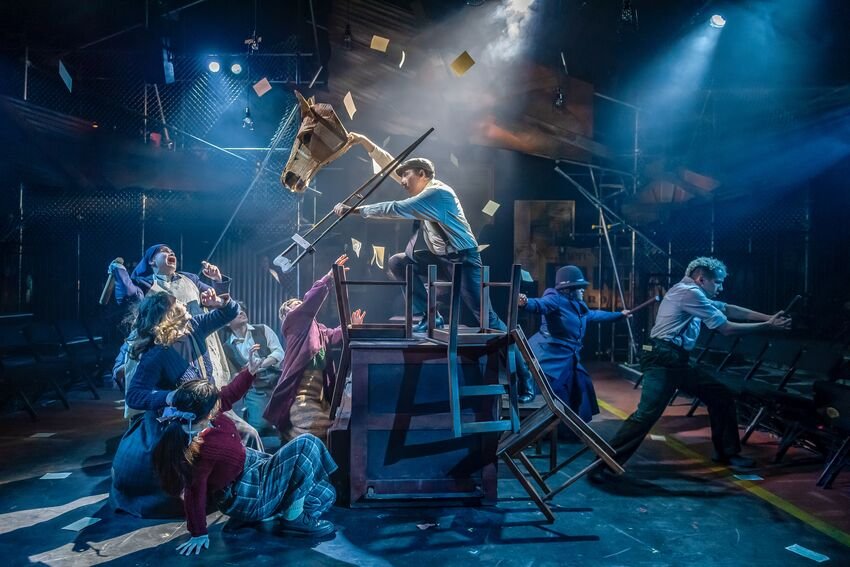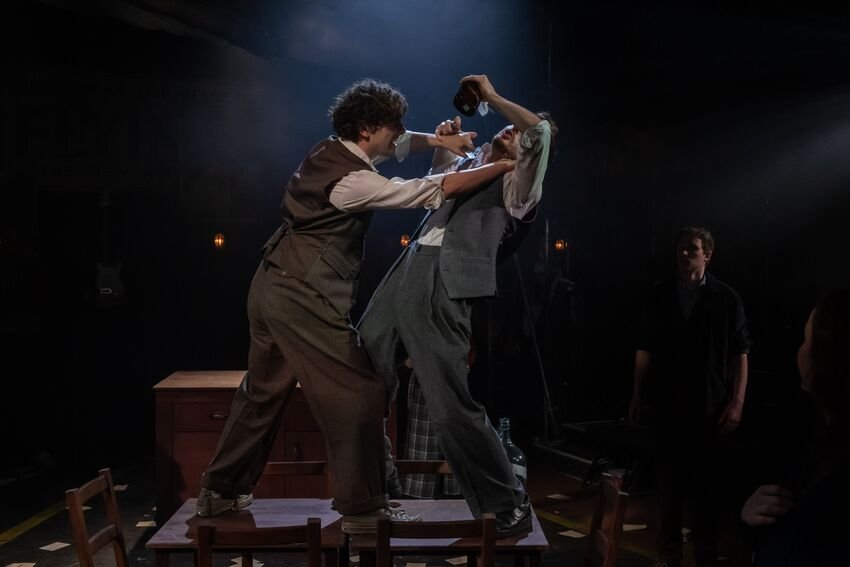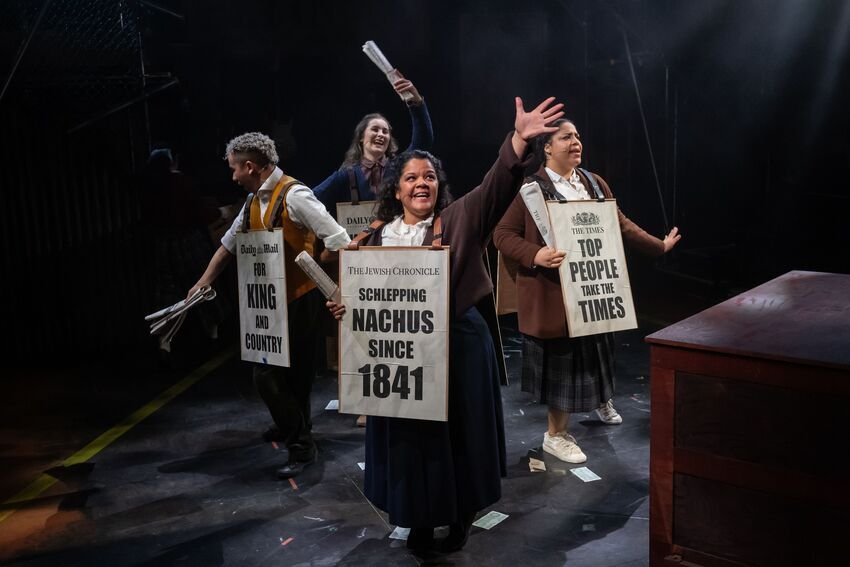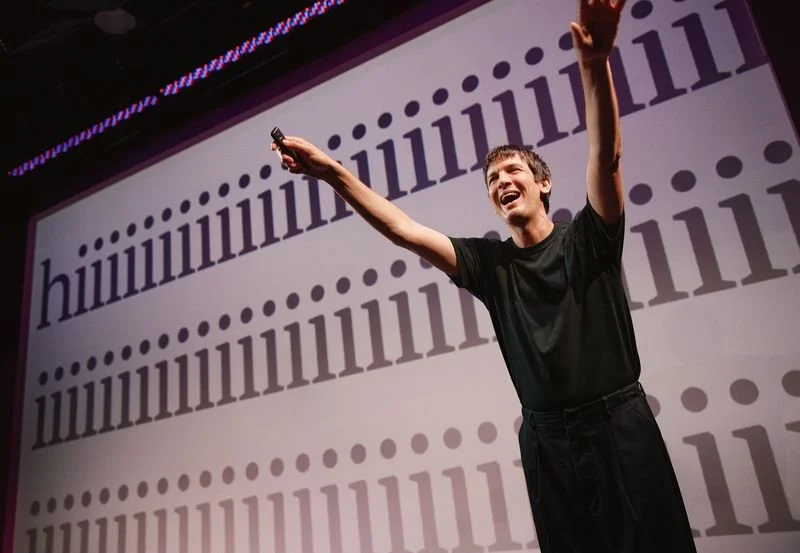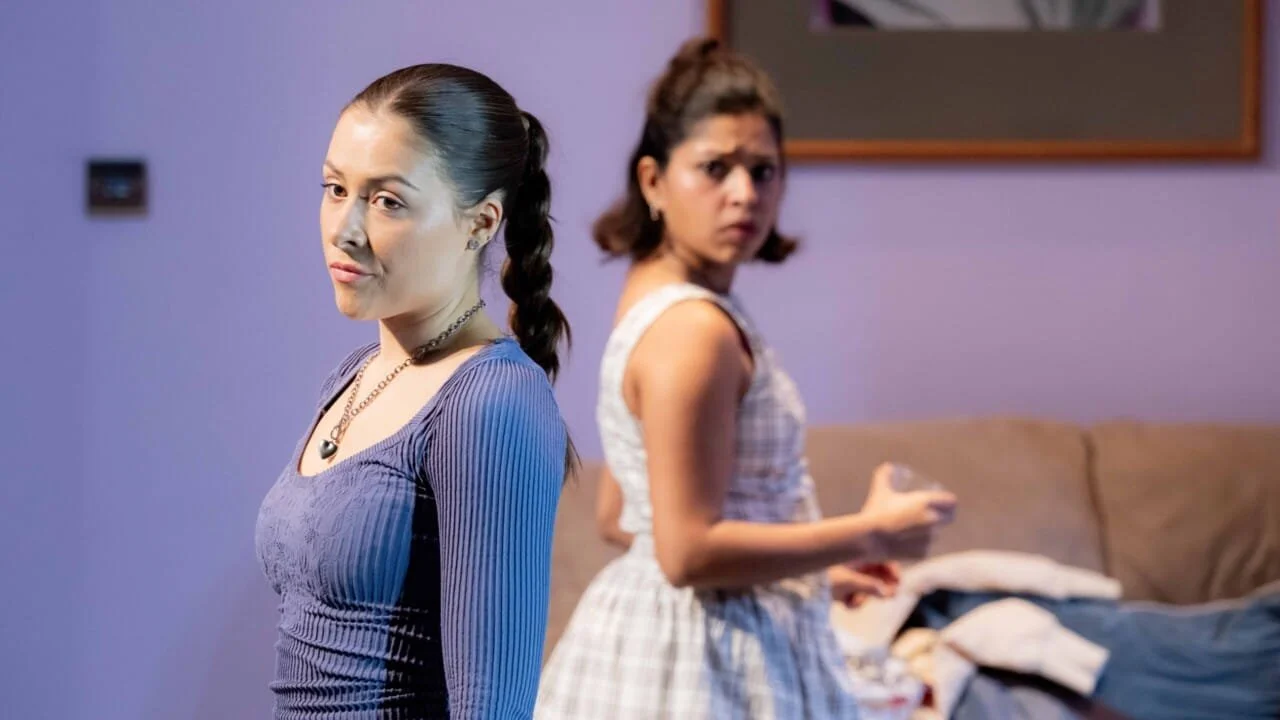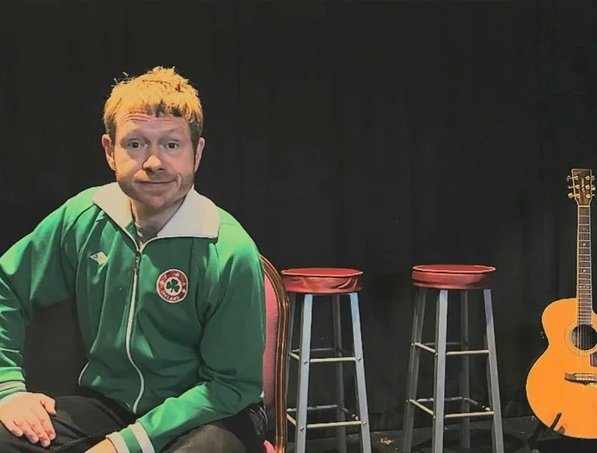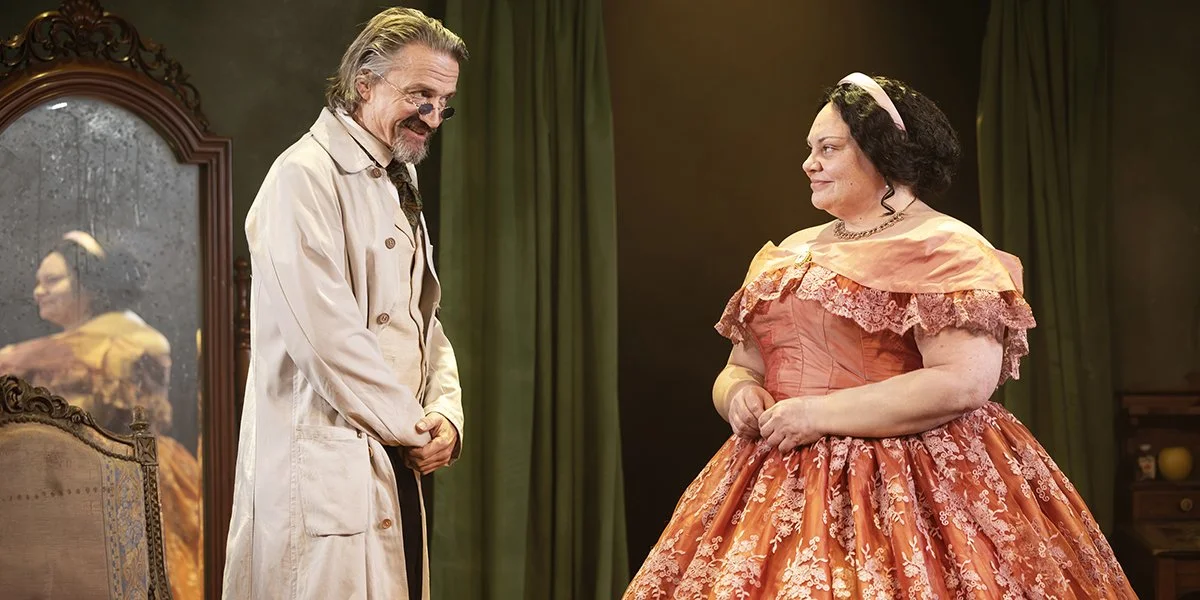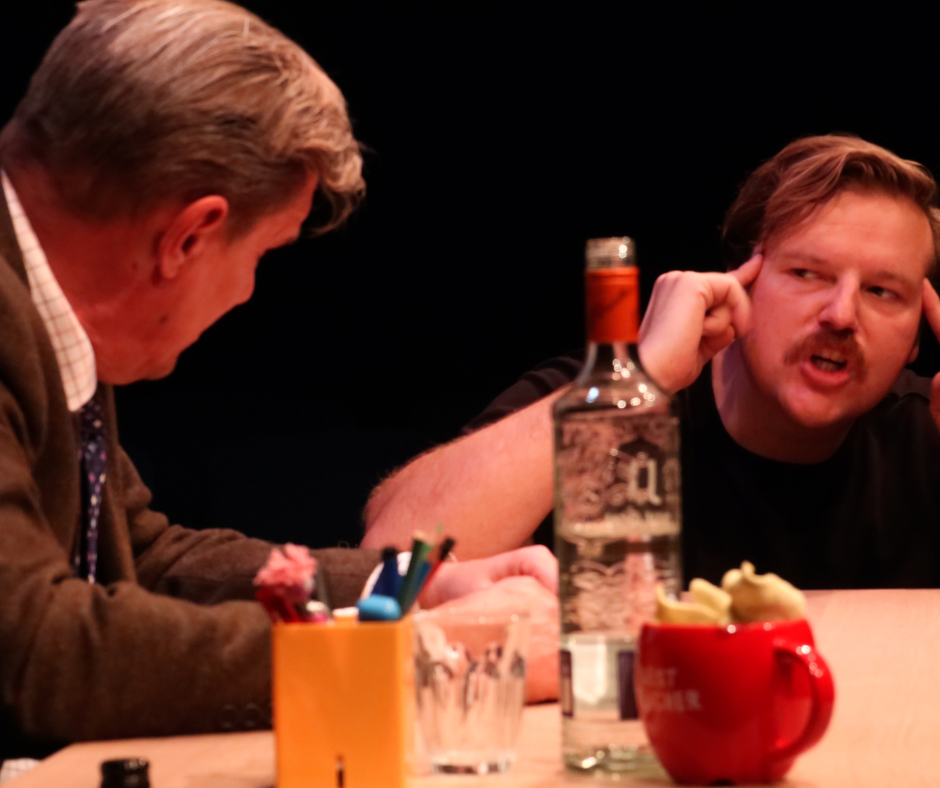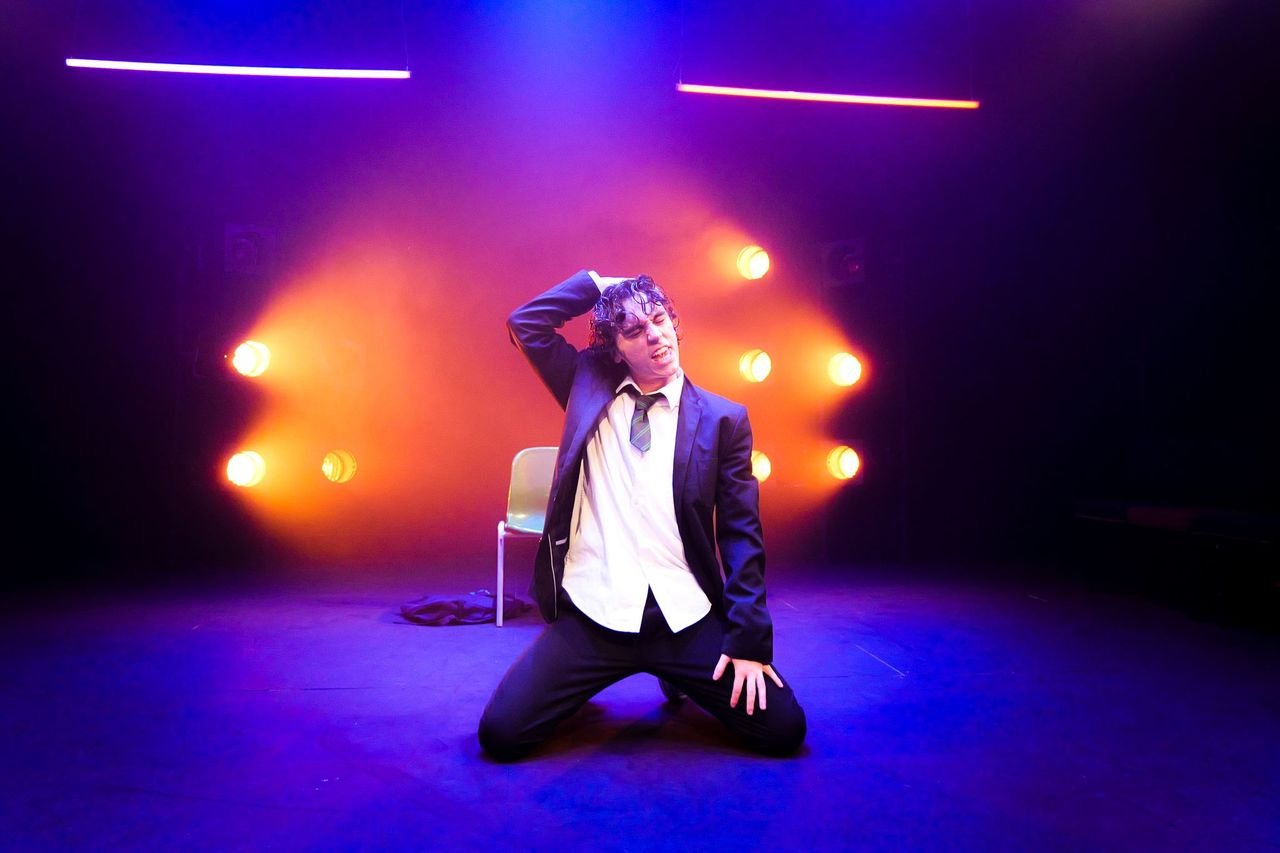Cable Street, Southwark Playhouse (Borough) Review
Photograph: Tristram KentonWritten by Penny for Theatre & Tonic
Disclaimer: Gifted tickets in exchange for an honest review.
In 1936, the Battle of Cable Street saw working class people rise up against Oswald Moseley’s British Union of Fascists (BUF), in order to stop them marching through London’s East End, with its large Jewish community.
It’s a subject that is still depressingly relevant today, with a clear rise in Anti-Semitism and Islamaphobia in the UK, stoked by divisive politicians and media. So, the timing of this new musical, by Tim Gilvin (composer and lyricist) and Alex Kanefsky (book), feels particularly appropriate. With a contemporary score, its cast of 11 tells the story of the diverse community of people who came together to take a stand against manufactured hatred.
Gilvin’s score takes inspiration from a huge variety of musical genres, including traditional Irish and Jewish melodies, rap, rock and also a few songs that are classic musical theatre. It’s an effective reflection of the diverse East London community that we meet on stage. An excellent three piece band, under the supervision of Tamara Saringer, produces a strong sound that never overwhelms the singers, boosted by two gifted actor/musicians (Aoife MacNamara and Max Alexander Taylor) on stage as part of the acting company. The singing from the cast is exceptional. I did feel that some of the rap sections didn’t scan or flow as well as they could have done and an early number set in an Irish-run pub could have done with a slightly softer start so that it could build to a greater crescendo. These are very minor points that can easily be addressed as the show continues to evolve.
The story of the 1936 events is framed by scenes set in modern day London, using a tour guide and his group to set the scene and also inject some humour into the piece with the inclusion of the inevitable rival tour focusing on Jack the Ripper. This device is both a celebration of the modern East End and a way of guiding us through the historical plot, largely seen through the eyes of Debbie Chazen’s American tourist, looking to trace her ancestral roots.
The rise of the fascist movement in London is a challenging subject and maybe not the most obvious choice for a musical, a genre that for many is still associated with a group of wholesome, plucky kids putting on a show in a barn. But the writing for Cable Street is so strong that, despite the fact that it doesn’t shy away from the dark side of history, it has a strong sense of community and hope and also manages to inject plenty of humour, even amongst the darker moments. Newspaper reporting is portrayed by a quartet representing four key titles, performing in a vaudeville style and sending up the posh readership of The Times contrasted with the Socialist Worker or Jewish Chronicle and not shying away from calling out the Daily Mail’s historical support of Mosley and his “army” of blackshirts. When the blackshirts are first introduced, it is via a musical number that has a real boyband vibe, complete with 90s style choreography from Jevan Howard-Jones. This high energy and somewhat comic approach to the show’s darkest characters reminded me a little of the opening to the second act of Operation Mincemeat, and we all know how that show is faring these days!
Director Adam Lenson has used the relatively limited space available to bring the community to life, with scenes involving the various families living on and around Cable Street running concurrently, which results in a fast-paced narrative that also clearly shows how over-crowded the housing was and how people’s lives couldn’t help but be intertwined. Effective use of furniture creates the homes, businesses and eventually London’s very own barricade, without the set looking either too crowded or too sparse. Yoav Segal’s set gives us an inner city backdrop with tired signage and metal fencing, fairly anonymous but still something audiences can recognise and relate to.
The 11 actors in the cast mostly play multiple characters, changing roles with a slight costume alteration, adopting completely different personalities with the switch. The most impressive example comes in the second act, with a personality change so extreme that its impact is even stronger. The first act ends with a strong call to arms led by the excellent Sophia Ragavelas, leaving the audience going into the interval full of anticipation for what is to come.
It is hard to pick stand out performances in this hugely talented company but the three principal characters deserve major credit.
Joshua Ginsberg plays young Jewish lad Sammy with a charismatic presence and plenty of passion. His character is the one adding quick-fire rap to the story. Comparisons to a certain Alexander Hamilton are inevitable and Ginsberg’s Sammy is certainly just as young, scrappy and hungry as his American counterpart. I wish he had a little more to actually sing as when he did have a solo towards the end of the show, his voice was fantastic.
As Mairaid, the socialist daughter of Irish immigrants, Sha Dessi lit up the stage. Her vocals were excellent, moving effortlessly from a powerful belt to a soaring soprano. She gives a hugely confident performance as this young girl turned political leader and the romantic sub-plot with Sammy is beautifully played, showing mutual respect and support rather than becoming over-sentimental.
The star of the piece for me was Danny Colligan in the difficult role of Ron, a young northern lad seduced by the fascists’ message. He has the perfect singing voice for a romantic male lead and to hear such a beautiful tone singing about the appeal of fascism is particularly striking. His performance is outstanding – showing us why the BUF would appeal to a naïve young man looking for somebody to blame for his circumstances, but also not entirely losing audience sympathy despite his actions, as it’s very clear from the direction and performances that he has been manipulated into joining.
Overall, this is an incredibly strong new British musical with a powerful story that is sadly particularly resonant for a modern British audience. It’s a reminder that we still haven’t learned our lessons from Cable Street and that it’s more vital than ever to come together and stand alongside our communities. But also it’s a hugely entertaining and enjoyable piece of theatre. The run at Southwark has already sold out and I am excited to see what is next for this outstanding piece of work.
Cable Street runs at Southwark Playhouse (Borough) until 16th March 2024.

